
22 Nov 2014 by Jason Law CM –
The history of the Christian Church is a long one. In that history, certain figures stand out, not merely as giants, but as titans, of whom, without them, the church would be very different today. We must recognize God as the source of all wisdom overruling these men and women, and not focus on these figures themselves. Nevertheless, these men and women have done more than most others to advance our understanding of whom God is and our relationship with Him.
The central figure of Christianity is of course Jesus, but in the long years of history, numerous men have also helped to defend the Church from heresy and whose writings have helped to shape the development of Christian understanding. Some examples of such men are Paul, Augustine, and Martin Luther.
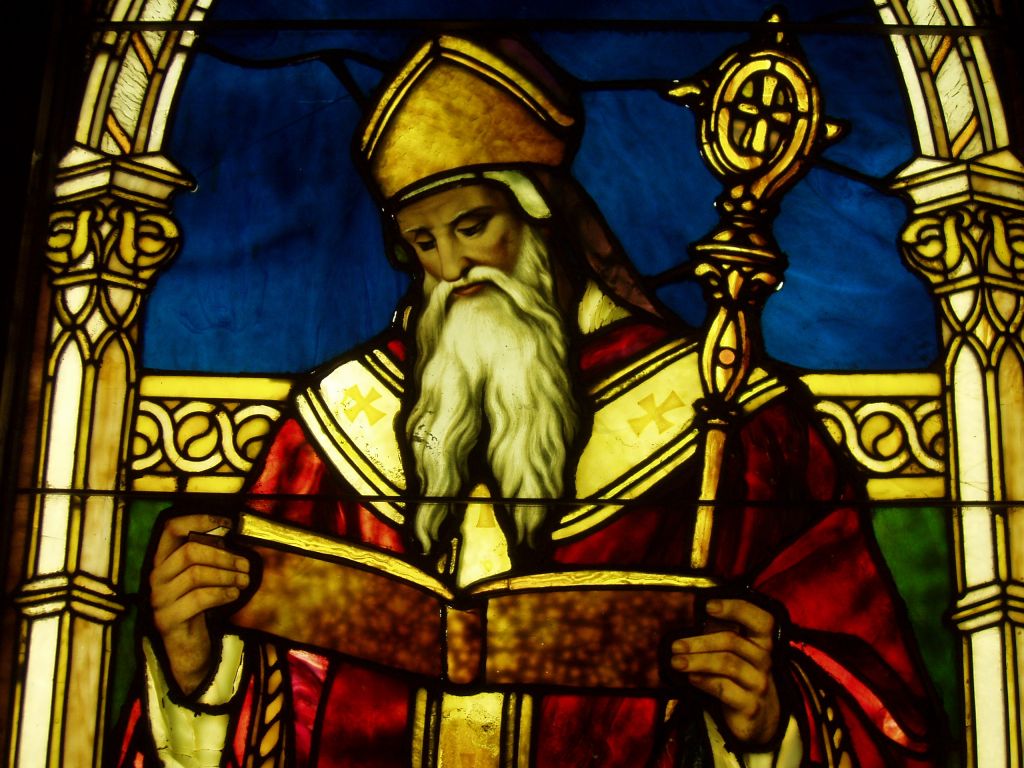
The purpose of this simple article is to take a casual look at Augustine’s thoughts as reflected in his ‘Confessions’, and it is based on my understanding of those thoughts. I am no theological expert, however, and part of the goal of this article is to encourage discussion concerning the theology of this important man.
Augustine (354-430) is regarded as one of the most important figures in history, not just within the Christian Church, but also in Western Philosophy. Often regarded as one of the foremost theologians of all time, his thoughts covered a whole range of areas. He possessed a brilliant and somewhat restless intellect, and his contemplations roamed wide over all areas of Christian thought, including the nature of memory and time. Most importantly, however, his thoughts had a profundity and articulateness to them that is still influential and highly admired to this day even by secular philosophers.

Bruce Shelley writes about Augustine’s place in history in his book ‘Church History in Plain Language’: ‘Not only providing light for the dark days just ahead [Augustine lived in a time of the collapse of the Roman Empire], his philosophy laid a foundation for Christendom. To this day Christians feel the impact of his mind and soul. Roman Catholicism draws upon Augustine’s doctrine of the church and Protestants upon his views of sin and grace.’ Two works among the prodigious amount of Augustine’s writings are particularly influential; his Confessions and his The City of God.
Augustine’s Confessions is famous for several reasons. It is widely regarded as the first autobiography in the Western canon, and it was the standard for Christian writing for more than a 1000 years. Possessing a beauty in style, profundity in perception, and soundness in construction, many of its passages are immortal, not least the account of his spiritual crossroads and final breakdown of resistance in the Milanese garden when, at the sound of a child’s voice calling (‘take and read’), he opened the Bible and read the words of Romans 13:14.
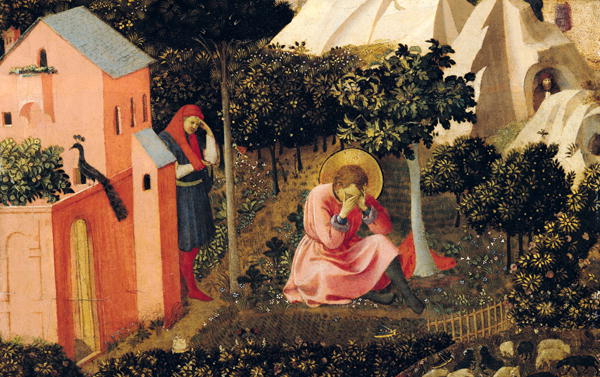
The Confessions were written by Augustine as such, in more ways than one. Foremost, it was a statement of Augustine’s belief, and he gave a detailed account of his journey, from sin to redemption and the knowledge of God through His providence. Secondly, the work is imbued with a confession of praise to God for His goodness, grace, and mercy. Most familiar to many modern-day readers, confession is also an act of admitting one’s sins, which Augustine did ragingly.
Many are the sins which Augustine confessed, not just his ambition and lust, but also his intellectual pride and his misplaced beliefs. For Augustine, his spiritual pilgrimage was more than a process of intellectual reasoning. His discovery of God was a mystical experience, an actual contact from an immanent yet transcendent God.
In the opening words of his spiritual autobiography, Augustine made the famous statement of praise to God; ‘You stimulate men to take pleasure in praising You, because You have made us for Yourself, and our hearts are restless until they can find peace in You’. More than anything, the story within the Confessions is that of a restless heart that ultimately finds rest in the knowledge of God.
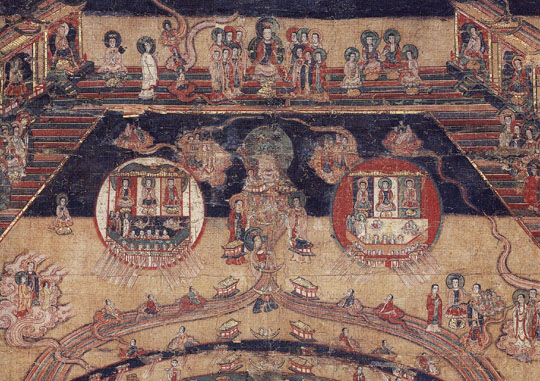
Augustine came from an intellectual background, and he was trained in the classical philosophies. Initially, he was influenced by Manichaeism and Neo-Platonism. Later in life, he would forgo much of this as false knowledge but retain some influences from the philosophy of Plato. Augustine recognizes God as the source of all goodness, and because God is good, everything that is created by God is by its nature, good. Nonetheless, none reaches the transcendent level of God as Goodness. Unlike the Manichees, Augustine saw evil not as a separate being from good but as a corruption and absence of the good.
He saw the Fall in Eden in a metaphysical sense. The hurtful desire and disobedience of Adam and Eve had resulted in the separation of humanity from God and becoming a massa damnata (mass of perdition, condemned crowd), with much enfeebled, though not destroyed, freedom of will. When Adam sinned, human nature was thenceforth transformed. Adam and Eve, via sexual reproduction, recreated human nature. Their descendants now live in sin, in the form of hurtful desires. As sinners, humans are utterly depraved in nature, lack the freedom to do good, and cannot respond to the will of God without divine grace.

Salvation is thus, predestined by God, and comes wholly through His loving grace. In Augustine’s spiritual autobiography, he gave much instances of this, and it is where much of the power of the Confessions comes from. Men, though enfeebled in freedom of will, still remain free to make choices. However, the will never decides without a motive, without the attraction of some good which it perceives in the object. Thus, the human will is never wholly free but responds to what it finds attractive or good.
The webpage http://www.newadvent.org/cathen/02091a.htm#II explains Augustine’s reasoning:
Man is not the master of his first thoughts; he can exert an influence on the course of his reflections, but he himself cannot determine the objects, the images, and, consequently, the motives which present themselves to his mind. Now, as chance is only a word, it is God who determines at His pleasure these first perceptions of men, either by the prepared providential action of exterior causes, or interiorly by a Divine illumination given to the soul.
These attractive motivations given by God inspire the human will to its response. God, in His foreknowledge knows how every soul, under complete freedom, will respond. Thus, in His divine knowledge, God prepares for each responsive created/human will ‘an indefinite series of motives which de facto (but very freely) win the consent to what is good’. Thus, salvation is a process that is preordained by God and there is nothing we can boast of in our salvation. Augustine finds a resolution to the paradox between God’s grace or predestination and the freedom of the human will.

Beyond the central issue of free will and God’s predestination, Augustine also explores the nature of memory and time. Memory, Augustine posits, is important to men. It is the place where we store all our past experiences, drawing them out when we need them to make sense of our current experience. Through our memory, we learn new things, and the growth of our relationship with God and others around us can only be made possible through our memory of their roles in our lives. Thus, memory itself is a gift from God, something to equip us so that we can grow in those relationships.
Augustine’s ideas about memory have influenced many modern-day philosophers, even including directors like Christopher Nolan. Peter T Chattaway of Patheos writes:
In his Confessions, Saint Augustine called memory “the belly of the mind”; it is the place where all of our experiences are stored and digested, long after we have ceased to have the experiences themselves. Without memory, we cannot learn new things, nor can we grow in our relationships with God or our fellow humans. Without memory holding his experiences together, there would not be a single Augustine, who left the hedonism of his youth to devote himself to God, but many Augustines, each one living in the moment without any connection to his past or future.
Similarly, in ‘Memento Mori‘, the short story which inspired this film, the narrator asserts that “every man is a mob, a chain gang of idiots,” and that life is “a daily pantomime, one man yielding control to the next.” For Augustine, the only solution was to appeal to the transcendent God, who alone has a perfect view of reality, and can thus keep us whole.
Augustine’s ideas about time are similarly remarkably-advanced for his day, but in order to understand it, we have to understand the philosophical fields of ontology and phenomelogy which essentially study the nature of being and consciousness. Though we use phrases like ‘a long past’ or a ‘long future’, Augustine points out that the phrases really don’t make sense in their literal meaning.
![[wallcoo.com]_time_AP43073](http://christianitymalaysia.com/wp/wp-content/uploads/2014/11/wallcoo.com_time_AP43073.jpg)
The past already gone, no longer exists. The future, which is yet to come, is yet to exist. How do we measure a past or future time period then? Even the present cannot have any duration and is constantly tending towards non-existence. Our present keeps slipping into the past. Thus, if we say ‘this moment’, it is no longer really ‘this moment’, since once we have completed saying those words, the moment in which we spoke them would have gone to the past and no longer exist. This applies even to seconds, not to mention days or months.
Time, Augustine argues, is a mental distension, a function of human memory and perception, a measurement to make sense of the impression of things or events on the mind. Thus, it is more accurate to talk about attention that focuses on the present, memory which focuses on the past, and expectation which focuses on the future. The same condition applies here as with memory.
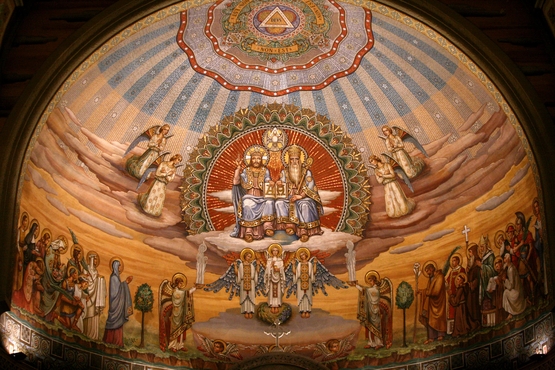
Understanding the disparate qualities that make up a single man, Augustine also presents his understanding of the Trinity. Just as man has being, knowledge, and will, but is one person, so the Holy Trinity has those qualities but is one God. The Father can be identified with being or existence: God the Father is eternal, perfect, and unchanging. The Son can be identified with knowledge: God the Son is the Word, the eternal Wisdom that gave order and meaning to the creation. The Holy Spirit can be identified with the will: God the Holy Spirit is the activity of God, at work throughout history and specifically within the body of the Church (CliffNotes).
Augustine’s story is the story of every Christian who had ever struggled in coming to know God. It reflects the very real story of the heart’s restlessness until it finds peace in the goodness of God, and the joy when God’s truth hits upon the mind. It is not an easy book to read, nor are all aspects within it acceptable to every person. Nonetheless, it is the nature and quality of great ideas to provoke the mind. The best product of such works is the fostering of a continual discussion and dialogue in search of truth.
NOTE: Parts of this article have been guided by the work of others at www.newadvent.org, www.patheos.com, and CliffNotes.
|Share The Good News|

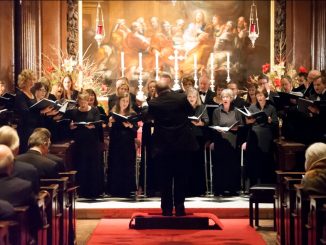


Leave a Reply